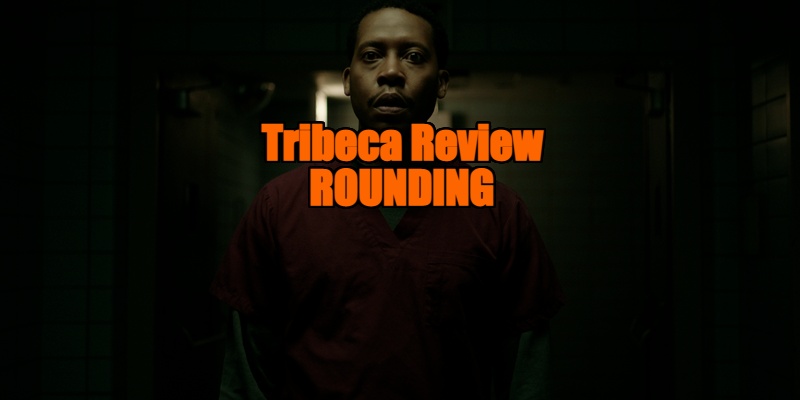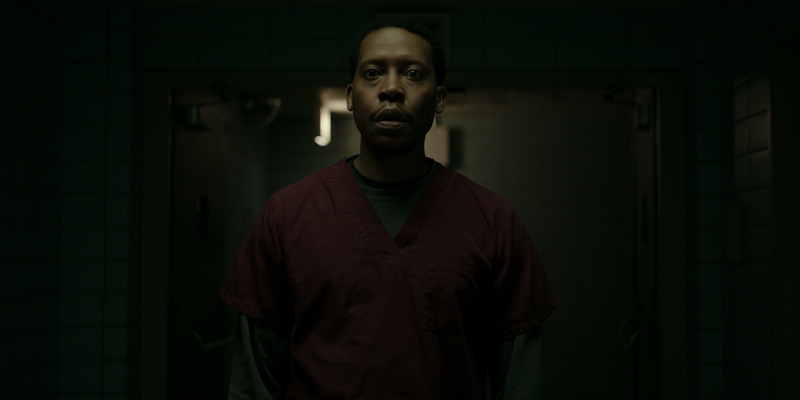
Review by
Eric Hillis
Directed by: Alex Thompson
Starring: Namir Smallwood, Sidney Flanigan, Michael Potts, Max Lipchitz, David
Cromer, Cheryl Lynn Bruce

Hospitals have long been a favoured setting for horror movies and
thrillers, and it serves as an eerie backdrop for
Saint Frances
director Alex Thompson's second feature Rounding. The movie takes its title from the term given to the process of
doctors doing the rounds of patients in their care. One patient in the
care of our young lead, resident physician James (Namir Smallwood), passes away during what may or may not have been a case of
euthanasia. No blame is placed at James' feet by the hospital
authorities, who want him to get straight back to work, but the incident
leaves the young doctor psychologically damaged.
Transferring to a rural hospital, James brings his demons along with
him as he attempts to make a fresh break. He suffers from extreme
insomnia, leading to hallucinations in which he sees fanged monsters.
His internal trauma becomes external when he twists his ankle and
refuses to have it seen to, dragging it along like an anchor.
When James encounters Helen (Sidney Flanigan), a young woman
repeatedly admitted for lung issues that the hospital staff believe are
simply in her head, he begins to take a personal interest in her case.
James suspects that Helen's domineering mother (Rebecca Spence)
may have convinced her daughter that she's suffering from non-existent
issues. When Helen is assigned for a lung transplant, James goes full
Michael Douglas in Coma, attempting to scupper the operation.

Thompson wrote his script with his brother Christopher, who is actually
a physician himself, and their doctor father acted as a consultant on
their script. The result is a movie that plays like one of the more
authentic representations of a hospital that we've seen on screen. Aside
from the implausibly dim lighting (how can any of the doctors see what
they're doing?), there's a remarkable verisimilitude here and the script
never dumbs down terms to make things easier for the viewer. The
characters here speak like doctors, creating the unsettling effect of
being stuck in a bed while people discuss your condition in a language
you don't understand.
While their characters are written in colourblind fashion, having James
and his superior Dr. Harrison (Michael Potts) played by
African-American actors adds an extra element to the latter's
frustration at the former's refusal to play along by the rules. You
can't help but feel that Harrison has gotten to his position by keeping
his head down and not asking any questions, something James resolutely
refuses to do.
In his movie debut, Smallwood, previously a jobbing TV actor, is quite
the find. As a leading man we feel like he's a star we've known for
several years. As the paranoid and taciturn James, he displays a sort of
anti-charisma, a man who wishes he could be left alone to face his
demons without constantly being asked if he's okay by people who really
just want him to get back to work. He's somewhat let down however by a
film that resorts to "elevated horror" gimmicks to portray his
psychological state. Rather than simply letting his leading man use his
acting skills, Thompson throws in hallucinations and a needless bit of
body horror, which momentarily take us out of what is really a grounded
human drama.


